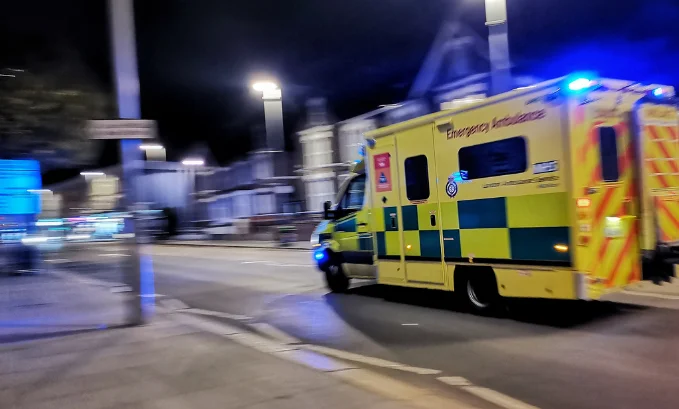Event Health Services: Your Key to a Safe and Successful Event

Event health services and its importance in planning and hosting successful events
Event health services are essential for any event, no matter how large or small. Event health services ensure that attendees have access to quality medical care in the case of an emergency. Event health services include emergency medical services like ambulances and paramedics, first aid stations and supplies, patient isolation facilities, medical professionals such as doctors and nurses, and more.
Having these services on-site can help reduce the severity of an illness or injury by providing quick response times. Immediate diagnosis and treatment help to reduce the risk of long-term effects or complications. At larger events with large crowds it is especially important to have event health services available in order to prevent any potential disasters.
In addition to providing a safe environment for attendees, event health services also help organizers plan their events more efficiently. They provide valuable feedback about the environment and potential risks associated with hosting the event. This feedback can prove invaluable when it comes to making corrective changes in order to ensure that the event is successful and runs smoothly.
Event health services are also beneficial for insurance purposes; having them present will usually lead to discounted rates for liability insurance if something does go wrong during the event due to lack of proper care or safety protocols not being followed.
Having access to quality event health services is essential for planning and hosting successful events as it helps create a safe environment where attendees can enjoy themselves without having to worry about unexpected illnesses or injuries occurring during their time at the event.
Understanding Event Health Services
Event health services encompass a wide range of medical and emergency services that are specifically tailored to address the needs of those attending large-scale events. These services are designed to provide pre-event screening and preparation, on-site medical care, and post-event follow up in order to ensure the safety and well-being of event attendees.
Event health services typically include things such as medical staff stationed at events who are equipped to diagnose, treat minor injuries or illnesses, as well as administer first aid if needed. Many event health service providers will also provide basic supplies such as splints, bandages and other equipment for minor emergencies. In more extreme cases, these providers can also provide emergency transport for more serious injuries or illnesses. Other services may include pre-event consultations and screenings for visitors with specific medical conditions or needs.
The importance of these types of services cannot be overstated; they ensure that regardless of where a person is attending an event, they have access to high quality healthcare should they need it. Event health service providers such as Valhalla Medics also serve as an extra layer of security throughout large gatherings; by ensuring that any issues which arise during an event are promptly dealt with it helps to create a safe and secure environment for everyone involved. Finally, having trained medical personnel on hand during events helps alleviate some of the logistical headaches associated with organizing large gatherings; by having everything from basic first aid supplies to emergency transport readily available it takes away some of the stress from both organizers and attendees alike.
Various aspects of event health services
Event health services are an important part of ensuring the safety and well-being of attendees at large events. This involves assessing potential risks before, during and after an event, providing medical support if needed, being prepared to respond in the event of an emergency, and properly managing crowds.
Before an event takes place, a risk assessment needs to be done as part of the pre-event planning. This includes identifying any potential hazards that could affect the safety of those attending or working at the event. Emergency medical services should also be on hand in case anyone requires more serious medical assistance. These services should include qualified medical personnel such as paramedics and trauma nurses as well as well-stocked ambulances with necessary equipment and medications.
Emergency preparedness is another key component of event health services. It involves having plans in place to respond quickly and effectively in the event of any emergency situation occurring during the course of an event. These plans should outline what steps need to be taken during such a situation including how best to notify relevant authorities and manage crowd control if necessary.
Finally, crowd management is essential for ensuring that larger events are run smoothly with minimal disruption from unruly or overcrowded areas. This includes controlling access points to limit numbers where necessary as well as providing adequate security staff for general crowd control purposes where applicable. All these aspects should be taken into consideration when planning for any large scale event setting.
Advantages of incorporating event health services in event planning

Event health services can greatly improve the safety and security of any event, providing medical assistance and emergency medical treatment onsite if needed. Not only does this increased safety protect the lives of attendees and staff, but it also reduces the event’s liability. Providing event health services sends a message to attendees that their wellbeing is a priority, which can lead to an enhanced reputation for the event organizer.
Furthermore, incorporating event health services into an event plan can help to minimize interruptions due to medical issues. By having trained professionals onsite to assess situations and respond quickly in case of emergency, many potential disruptions can be avoided. This allows organizers to keep their events running smoothly while ensuring the safety of all participants.
Other advantages of using event health services include improved communication between staff and medical personnel regarding potential issues, as well as access to specialized equipment tailored to the needs of each particular event. Event health services are also beneficial as they often provide more cost-effective solutions than traditional hospital visits or ambulance transport for minor injuries or illnesses encountered at an event.
Overall, incorporating professional event health services into an event plan can provide numerous benefits in terms of improved safety, reduced liability, and enhanced reputation for organizers and participants alike.
Event health services contribute to a positive attendee experience
Event health services play an essential role in promoting a safe and secure environment for attendees. Event health services can include emergency medical services, such as paramedics, nurses, and doctors who are on-site to provide medical care in the case of an accident or injury. Additionally, event medical services such as first aid stations, ambulances, and stretchers can be used to transport injured individuals to appropriate care facilities when necessary.
Event health services contribute to a positive attendee experience by providing professional medical care that meets the safety and security standards of the event. This ensures that attendees will be safe and assured during their time at the event. Emergency medical responders are trained to handle any type of medical emergency situation that may arise which helps eliminate any potential panic or confusion guests may feel should they require medical attention.
Furthermore, having event health services on-site can help reduce wait times for those who experience minor injuries or illnesses such as headaches or stomach problems. This allows them to quickly receive treatment so they can get back into enjoying their time at the event with minimal disruption. Furthermore, having staff on-site dedicated to managing injuries or illnesses is one way for organizers to show their commitment towards ensuring the safety and well-being of guests.
Event health services are beneficial in providing a safe and secure environment for attendees while promoting a positive attendee experience. By having trained professionals available alongside specialized equipment like ambulances and stretchers ready in case of an emergency, organizers have peace of mind knowing they have taken all necessary precautions should something unforeseen occur.
Key Components of Event Health Services
A comprehensive event health services plan should include risk assessment and management, on-site medical support, and contingency planning.
Risk assessment and management involves understanding the potential risks posed by an event, such as overcrowding, extreme weather conditions, or environmental hazards. It also involves taking steps to mitigate any risks that have been identified. This might involve implementing crowd control measures, providing additional resources for cooling or heating the event space, or engaging with local authorities to ensure safety protocols are followed.
On-site medical support is essential for any large scale event. This may include having access to qualified healthcare professionals in case of injury or illness, ensuring first aid supplies are readily available throughout the venue, and having a plan in place for how to manage more serious medical situations that may arise during the event.
Contingency planning is also a key element of any comprehensive event health services plan. This involves having strategies in place in case something unexpected happens that could threaten public safety or cause disruption to the event. These might include evacuation procedures for severe weather events, plans for responding to natural disasters or other emergencies, and fallback pitches if the original venue becomes unavailable due to unforeseen circumstances.
Overall, a comprehensive event health services plan should take into account all potential risks posed by an event and provide solutions to mitigate them while also being prepared for unpredictable scenarios that might arise during the course of the event.
Best practices for implementing event health services
Event health services are an essential component of any event, regardless of size, location, or type. Event organizers must be mindful of the safety and well-being of attendees as well as staff and vendors, which is why emergency medical services (EMS) should always be available on site.
For smaller events such as galas or concerts, EMS may include emergency response teams equipped with basic first aid equipment, personnel trained in CPR/AED/First Aid, and access to a doctor or nurse practitioner when needed. For larger events such as festivals or conventions, more comprehensive options may be required. These may include paramedic teams that can provide advanced levels of medical care and transport services if necessary; licensed physicians staffed throughout the event grounds; and communication systems to ensure that all responders are aware of any medical incidents on site.
Organizers can also consider making use of mobile healthcare solutions like ambulances or portable medical centers that can travel between sites to provide more flexible support for events taking place across multiple locations. Additionally, by implementing on-site screening processes such as temperature checks upon entry or contact tracing procedures during the event itself, organizers can help reduce the risk of transmission for communicable illnesses like COVID-19.
Finally, robust emergency preparedness plans should be put into place ahead of time to ensure that everyone involved is aware of proper protocols in case any medical incident arises during the event. This includes having designated emergency contacts listed on programs and signage throughout the venue; providing clear instructions for reporting issues; having a plan for evacuation if necessary; and ensuring all staff know how to address various emergencies quickly and confidently.
By following these tips and best practices for implementing event health services in considering factors like size, location, and type — event organizers can help create safe environments where attendees can enjoy their experiences without worry.